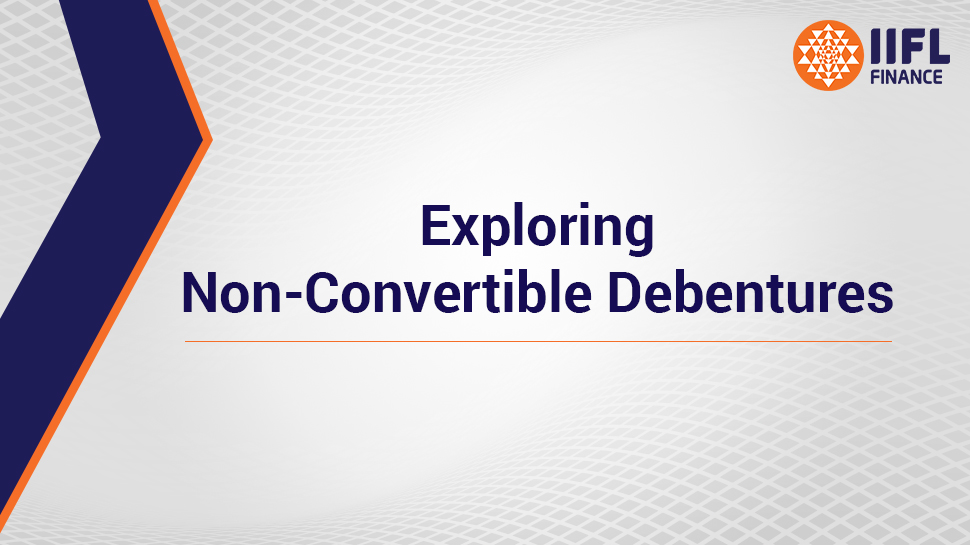Written by Web Desk Team | Published :June 15, 2023 , 8:30 am IST

Exploring Non-Convertible Debentures: Types and Key Features
In the area of investment opportunities, there are many financial instruments available to individuals and organizations. One such instrument that often catches the attention of investors is the non-convertible debenture (NCD). NCDs offer a unique avenue for raising capital and provide investors with an alternative investment option. In this article, we will look into the particulars of non-convertible debentures, shedding light on what they are, how they work, and their types.
Defining Non-Convertible Debentures
Non-Convertible Debentures (NCDs) are a type of debt instrument issued by corporations, financial institutions, and government entities to raise capital. They are essentially loan agreements in the form of bonds, where investors lend money to the issuer in exchange for regular interest payments and the repayment of the principal amount at maturity.
Investors holding NCDs receive fixed interest payments for the agreed-upon tenure and do not participate in the ownership or voting rights of the issuing entity.
Types of non-convertible debentures
In India, non-convertible debentures (NCDs) are issued by various entities, including corporations, financial institutions, and government organizations. Here are some common types of non-convertible debentures available in India:
Secured Non-Convertible Debentures: These debentures are backed by specific assets or collateral provided by the issuing entity. The collateral acts as a security for the debenture holders in case of default by the issuer.
Unsecured Non-Convertible Debentures: Unsecured NCDs do not have any specific collateral backing. Investors rely solely on the creditworthiness of the issuing entity for repayment. Unsecured NCDs carry a higher risk compared to secured NCDs but may offer higher interest rates.
Both types of NCDs can list on the recognized stock exchanges which provide liquidity to investors as they can be bought or sold on the stock exchange before their maturity.
Conclusion
Non-Convertible Debentures (NCDs) present an intriguing investment avenue for individuals seeking fixed income with a defined investment horizon. With their fixed interest payments, customizable tenures, and relatively stable nature, NCDs can complement a well-diversified investment portfolio. However, investors must carefully evaluate the creditworthiness of the issuing entity and consider the associated risks before venturing into NCDs. By balancing the benefits and drawbacks, investors can make informed decisions regarding the inclusion of NCDs in their investment strategy.





